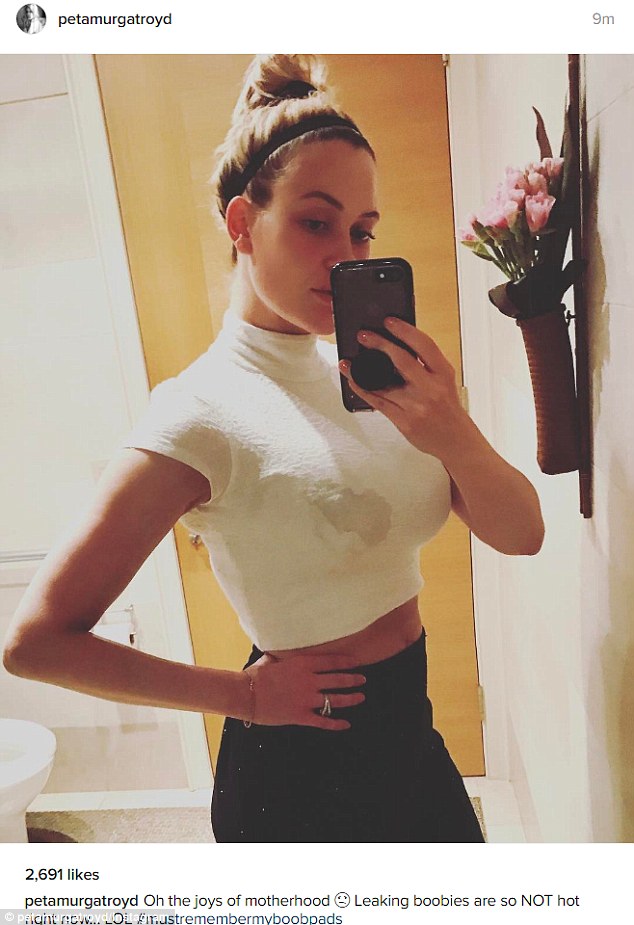In the ever-evolving world of online content, the world of exclusive content platforms like OnlyFans has been making waves, attracting a vast audience seeking personalized and explicit content. Among the popular content creators on this platform is Julesari, whose OnlyFans leak has ignited a firestorm of controversy and discussion.
Julesari's OnlyFans account gained significant traction, quickly amassing a large following eager to access her exclusive content. However, a significant turn of events occurred when a leak surfaced online, exposing private photos and videos from her OnlyFans account. This leak caused ripples throughout the online community, stirring debates about privacy, consent, and the consequences of sharing explicit content online.
As the public grapples with the implications of the Julesari OnlyFans leak, it is crucial to delve deeper into the intricacies of the situation, exploring its impact on the content creator, the online community, and the broader societal discourse surrounding online privacy and consent.
julesari onlyfans leak
Privacy Breach Sparks Controversy
- Personal Content Exposed Online
- Consent and Privacy Concerns Raised
- Online Community Divided
- Social Media Frenzy and Scrutiny
- Discussions on Digital Ethics
The Julesari OnlyFans leak has ignited a multifaceted debate, highlighting the complexities of digital privacy, consent, and the impact of online content leaks on individuals and society as a whole.
Personal Content Exposed Online
The Julesari OnlyFans leak brought to light the issue of personal content being exposed online without consent. The leak involved the unauthorized sharing of private photos and videos from Julesari's OnlyFans account, which is a platform where creators share exclusive content with their subscribers.
- Privacy Invasion and Exploitation:
The leak violated Julesari's privacy and exploited her personal content for the gratification of those who shared and viewed it without her consent. This act of non-consensual distribution raises serious ethical and legal concerns.
- Impact on Creator's Livelihood:
For content creators like Julesari, OnlyFans serves as a source of income and a means to connect with their audience. The leak jeopardized her livelihood by potentially deterring subscribers and damaging her reputation.
- Doxxing and Online Harassment:
In some cases, leaked content can lead to doxxing, where personal information is revealed online, making the individual vulnerable to harassment and further privacy violations.
- Normalization of Non-Consensual Sharing:
The circulation of leaked content can contribute to a culture where non-consensual sharing of private images and videos is normalized. This can have a chilling effect on individuals' willingness to share personal content online.
The personal content exposed in the Julesari OnlyFans leak highlights the need for stronger protections against unauthorized sharing of private content and the importance of respecting individuals' privacy rights in the digital age.
Consent and Privacy Concerns Raised
The Julesari OnlyFans leak brought to the forefront concerns about consent and privacy in the digital age. The unauthorized sharing of her private content without her consent raised questions about the boundaries of acceptable behavior online and the need for stronger protections against non-consensual distribution of personal content.
Consent and Digital Privacy:
Consent is a fundamental principle in any form of content sharing, including online platforms like OnlyFans. By subscribing to Julesari's OnlyFans account, her followers agreed to access her exclusive content within the confines of the platform. The leak violated this agreement and her right to control the distribution of her personal content.
Blurred Lines of Public and Private:
The internet has blurred the lines between public and private spaces, making it easier for personal content to be shared and disseminated widely. This raises concerns about the erosion of privacy rights and the need for individuals to have greater control over their digital footprint.
Impact on Trust and Personal Relationships:
The Julesari OnlyFans leak highlighted the potential impact of non-consensual content sharing on trust and personal relationships. The betrayal of trust by those who shared the leaked content can have lasting consequences for Julesari's relationships with her subscribers and loved ones.
Need for Stronger Legal Protections:
The Julesari OnlyFans leak exposed the limitations of existing laws in addressing non-consensual sharing of private content online. This incident underscores the need for stronger legal protections and enforcement mechanisms to deter and punish those who engage in such行為.
The consent and privacy concerns raised by the Julesari OnlyFans leak call for a broader discussion about digital ethics, consent culture, and the role of technology companies in protecting users' privacy rights.
Online Community Divided
The Julesari OnlyFans leak divided the online community, sparking heated debates and discussions. The incident highlighted the complex and often conflicting views on privacy, consent, and the role of social media in shaping public opinion.
Supporters and Critics:
Julesari's supporters rallied around her, expressing empathy and condemning the non-consensual sharing of her private content. They argued that the leak was a violation of her privacy and that those who shared the content were engaging in harmful and exploitative behavior.
Privacy vs. Public Interest:
Others argued that the leak was a matter of public interest, as it raised important questions about the boundaries of privacy in the digital age. They contended that the public had a right to know about the potential risks and consequences of sharing personal content online.
Blurred Lines of Accountability:
The Julesari OnlyFans leak also exposed the challenges of holding individuals accountable for their actions online. While some called for legal action against those who shared the leaked content, others argued that the anonymity and decentralized nature of the internet made it difficult to effectively enforce such measures.
Need for Constructive Dialogue:
The online community's divided response to the Julesari OnlyFans leak underscores the need for constructive dialogue and a balanced approach to addressing the complex issues of privacy, consent, and accountability in the digital age.
The online community's reaction to the Julesari OnlyFans leak reflects the broader societal struggle to navigate the intersection of personal privacy, freedom of expression, and the ethical implications of sharing personal content online.
Social Media Frenzy and Scrutiny
The Julesari OnlyFans leak triggered a social media frenzy, with the incident becoming a trending topic and sparking widespread discussion and scrutiny online. This intense public attention brought both support and criticism for Julesari, highlighting the double-edged sword of social media in shaping public opinion.
- Rapid Dissemination of Information:
Social media platforms facilitated the rapid dissemination of information about the Julesari OnlyFans leak, reaching a vast audience within a short time frame. This widespread attention brought the issue to the forefront of public consciousness and fueled discussions about privacy, consent, and the consequences of sharing personal content online.
- Polarized Opinions and Online Harassment:
The social media frenzy surrounding the Julesari OnlyFans leak also amplified polarized opinions and online harassment. While some users expressed empathy and support for Julesari, others engaged in victim-blaming and derogatory comments. The anonymity and lack of accountability on social media platforms can exacerbate these harmful behaviors.
- Pressure on Julesari and Public Apologies:
The intense scrutiny and public pressure resulting from the social media frenzy prompted Julesari to issue public apologies and address the leak. This highlights the significant impact of social media in shaping public perception and the pressure it can exert on individuals involved in controversial incidents.
- Calls for Accountability and Legal Action:
Social media also became a platform for demanding accountability and calling for legal action against those who shared the leaked content. The public outcry and pressure from online communities can influence law enforcement and legal authorities to take action in cases involving non-consensual sharing of private content.
The social media frenzy and scrutiny surrounding the Julesari OnlyFans leak underscore the profound impact of social media in shaping public opinion, amplifying both support and criticism, and influencing the course of events.
Discussions on Digital Ethics
The Julesari OnlyFans leak sparked discussions on digital ethics, raising questions about the responsible use of technology, the boundaries of privacy in the digital age, and the need for ethical guidelines in online content sharing.
- Consent and Privacy in the Digital Age:
The leak highlighted the importance of consent and privacy in the digital age, emphasizing the need for individuals to have control over their personal content and the right to decide how and with whom it is shared.
- Non-Consensual Content Sharing:
The incident brought attention to the harmful consequences of non-consensual content sharing, including the violation of privacy, the potential for exploitation, and the lasting impact on individuals' reputations and well-being.
- Accountability and Legal Implications:
The discussions surrounding the Julesari OnlyFans leak also touched upon the need for accountability and the role of legal frameworks in addressing non-consensual content sharing. The incident raised questions about the adequacy of existing laws and the need for stronger measures to deter and punish those who engage in such behavior.
- Ethical Responsibilities of Social Media Platforms:
The leak prompted scrutiny of the ethical responsibilities of social media platforms in preventing the spread of non-consensual content and protecting users' privacy. The discussions highlighted the need for platforms to implement effective mechanisms for reporting and removing harmful content, as well as to educate users about the importance of consent and responsible content sharing.
The Julesari OnlyFans leak served as a catalyst for broader discussions on digital ethics, emphasizing the need for a collective effort among individuals, content creators, social media platforms, and policymakers to promote a safer and more ethical online environment.
FAQ
This section addresses frequently asked questions (FAQs) related to the Julesari OnlyFans leak:
Question 1: What is the Julesari OnlyFans leak?
Answer: The Julesari OnlyFans leak refers to the unauthorized sharing of private photos and videos from Julesari's OnlyFans account, an online platform where creators share exclusive content with their subscribers.
Question 2: How did the leak happen?
Answer: The exact circumstances surrounding the leak are still under investigation. However, it is believed that the content was obtained through unauthorized access to Julesari's OnlyFans account or through hacking.
Question 3: What are the consequences of the leak for Julesari?
Answer: The leak has had a significant impact on Julesari, including the violation of her privacy, potential damage to her reputation, and concerns about her safety and well-being.
Question 4: What legal actions can be taken in response to the leak?
Answer: The legal implications of the leak are complex and depend on various factors, such as the jurisdiction and the specific laws governing non-consensual content sharing. Potential legal actions may include copyright infringement claims, invasion of privacy lawsuits, and criminal charges.
Question 5: What can be done to prevent similar leaks in the future?
Answer: Preventing similar leaks requires a multi-faceted approach, including stronger legal protections, improved security measures by online platforms, and education and awareness campaigns to promote responsible content sharing.
Question 6: How can individuals protect their privacy online?
Answer: Protecting online privacy involves implementing strong passwords, being cautious about what personal information is shared online, using privacy settings and tools offered by online platforms, and being aware of the potential risks associated with sharing personal content.
Question 7: What role do social media platforms play in addressing non-consensual content sharing?
Answer: Social media platforms have a responsibility to create and enforce policies against non-consensual content sharing, provide reporting mechanisms for users to flag harmful content, and cooperate with law enforcement agencies in cases involving illegal activities.
Closing Statement: The Julesari OnlyFans leak serves as a reminder of the importance of digital privacy, consent, and responsible content sharing. Addressing the issues raised by this incident requires a collaborative effort among individuals, content creators, social media platforms, and policymakers to promote a safer and more ethical online environment.
As we navigate the complexities of digital privacy and consent, it is essential to prioritize the protection of individuals' rights and well-being in the online realm.
Tips
In the wake of the Julesari OnlyFans leak, it is crucial to prioritize digital privacy and responsible content sharing. Here are some practical tips to help protect your privacy and prevent similar incidents from occurring:
Tip 1: Use Strong Passwords and Two-Factor Authentication
Create strong and unique passwords for all your online accounts, including social media and content sharing platforms. Consider using a password manager to generate and store your passwords securely. Additionally, enable two-factor authentication to add an extra layer of protection against unauthorized account access.
Tip 2: Be Cautious About Sharing Personal Information
Limit the amount of personal information you share online, especially on public platforms. Avoid sharing sensitive information such as your full name, address, phone number, or financial details. Be mindful of the privacy settings on your social media accounts and adjust them to restrict access to your personal information.
Tip 3: Report and Flag Inappropriate Content
If you encounter non-consensual or harmful content online, report it to the platform where it is hosted. Most social media and content sharing platforms have reporting mechanisms in place to address such content. By reporting inappropriate content, you can help prevent its spread and protect others from being exposed to it.
Tip 4: Educate Yourself and Others
Stay informed about digital privacy and consent issues. Educate yourself about the risks associated with sharing personal content online and the legal implications of non-consensual content sharing. Share your knowledge with others and encourage them to prioritize their online privacy and safety.
Closing Statement: Protecting your digital privacy and preventing incidents like the Julesari OnlyFans leak requires vigilance and proactive measures. By following these tips and staying informed, you can contribute to a safer and more ethical online environment.
As we continue to navigate the digital landscape, let us prioritize the protection of individuals' rights, privacy, and well-being.
Conclusion
The Julesari OnlyFans leak brought to light a multitude of complex issues related to digital privacy, consent, and the ethical implications of sharing personal content online. The incident highlighted the importance of respecting individuals' rights and boundaries in the digital realm.
Summary of Main Points:
- Privacy Breach and Consent Violation: The unauthorized sharing of Julesari's private content without her consent constituted a clear violation of her privacy and autonomy.
- Impact on Content Creators: The leak jeopardized Julesari's livelihood as a content creator, potentially deterring subscribers and damaging her reputation.
- Online Community Divided: The incident divided the online community, with some expressing support for Julesari and others engaging in victim-blaming and harassment.
- Discussions on Digital Ethics: The leak sparked broader discussions on digital ethics, emphasizing the need for responsible content sharing and stronger protections against non-consensual content.
- Legal and Social Implications: The leak highlighted the limitations of existing laws in addressing non-consensual content sharing, calling for stronger legal frameworks and accountability measures.
Closing Message:
The Julesari OnlyFans leak serves as a cautionary tale, reminding us of the urgent need to prioritize digital privacy and consent. It is crucial that individuals, content creators, social media platforms, and policymakers work together to create a safer and more ethical online environment where personal content is respected and protected.
As we continue to navigate the digital age, let us strive to uphold the values of privacy, consent, and responsible content sharing, ensuring that the online world becomes a space where individuals can express themselves freely without fear of exploitation or harm.
Grace boor onlyfans leak
Emarr b leaked onlyfans
Morgpie onlyfans leaked



ncG1vNJzZmiamZmupa3RomWsnp9oe6W1xqKrmqSfmLKiutKpmJydo2OwsLmOo6ylnaOWv6p5zqejsp6Ro8BuuMSaomegpKK5